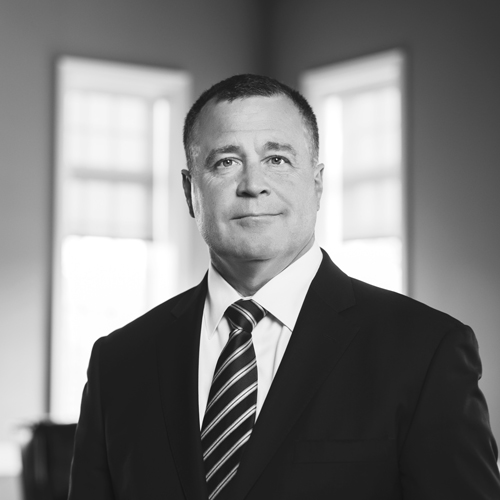When United Airlines named its general counsel as interim CEO in 2015, the decision may have surprised a few. Someone it didn’t surprise, however, was Steve Beard, the executive vice president, general counsel, and chief administrative officer for professional services firm Heidrick & Struggles.
Beard has watched lawyers become more involved in companies’ business objectives for years. The fact that a Fortune 100 company would trust a lawyer in the highest echelon of corporate governance only seemed like a natural development.
“At one time, the GC role served as an auxiliary to senior management, but now a GC is a core member of the senior team. In addition to the traditional set of responsibilities, the GC is now called upon to share responsibility for business strategies,” Beard explains.
And it makes sense. Beyond their expertise in matters of law, compliance, and ethics, lawyers develop a set of skills—communicating effectively, cutting through complexities, and arguing persuasively, to name a few—that can be applied broadly. As senior leadership has looked at how various functions within the business can contribute more, the general counsel’s skill set has migrated out of the role’s traditional parameters to focus on overall strategy and decision-making.
“It’s a set of skills that transcends the domain expertise of the law,” Beard says. “The instincts you develop as a lawyer in trying to ascertain the risks of a given strategic or operational choice—design ways to achieve it while still mitigating risk—has an application far beyond a purely legal context. I think experienced lawyers—and GCs in particular—are well-suited to engage in broader strategic dialogue in ways that are valuable to the balance of the team around the executive table.”
Risk management continues to be an integral aspect of a general counsel’s role. They have to oversee compliance with a vast set of regulations, creating an infrastructure without requiring the company to have to think too much about it. As the role continues to evolve, general counsel have been asked to bring that legal and ethical compliance lens to a broader set of initiatives: growth, diversification, pricing strategy, and more. This helps the business foresee and avoid impediments to achieving its objectives.
“To be successful in anticipating and mitigating legal risk, you have to understand the business as a whole,” Beard explains. “Once you gain that knowledge, it is logical that you would be in a position to leverage it to help guide the broader senior leadership discussion.”
At Heidrick & Struggles, Beard views his job as having three spheres of activity: He’s a strategic partner to the CEO and a collaborative member of the executive leadership team; a trusted advisor to the board as corporate secretary; and the leader and manager of the company’s counsel—inside and out. The latter two are the traditional roles, but it’s the first position where he’s been able to add the most value.
“Assuming you have the appropriate level of credibility with your team and knowledge of the law—along with good judgment—being able to step outside of the narrowly defined world of legal risk to advise your peers on a broader set of issues is welcomed by senior leadership here. There’s no sense that you’re crossing swim lanes.”
Heidrick & Struggles has been in business for more than sixty years as an executive search firm, but through a number of recent acquisitions, the company has been diversifying its services.
“Thinking about the next chapter of our growth story, our goal is to strengthen the core legacy business while responding to a broader set of client needs,” Beard says.
As the company and his role evolve, Beard takes a view that encompasses much more than just the boardroom. As the first person in his family to go to college, he has served as the chair of the Board of Ethics for the City of Chicago, a political appointment, and continues to do pro bono work with several organizations focused on creating more and higher-quality educational opportunities for Chicago youth.
He notes that the world is different now than when his father could get a well-paying manufacturing job with only a high school education. Philanthropic work is his way of advancing toward solutions for Chicago’s challenges.
“I don’t know many people who are able to fill the tank just with what they do in the office,” Beard says. “Broader engagement helps me do my job better.”
Beard says he would not be surprised if more general counsel make vertical moves within companies in coming years, as they are brought further into the fold in developing an overall business strategy aligning with the goals of their respective companies.
“The skill set of a successful lawyer can’t be overlooked as potentially adding value in a general management role,” he says. “The world only gets more complex, and as a result, the businesses we work in get more complex. Whether that’s the increasing globalization of business, the rapid pace of technological disruption, growing regulatory burdens, or the need to better leverage talent to build competitive advantage, lawyers bring to these challenges the ability to distill a vast amount of information and bring clarity to a set of choices a management team has to make to drive its agenda. I wouldn’t say that every lawyer is equipped to become a C-suite executive or a CEO, but increasingly, lawyers who come in-house are better equipped to step into those roles than they have ever been in the past.”


